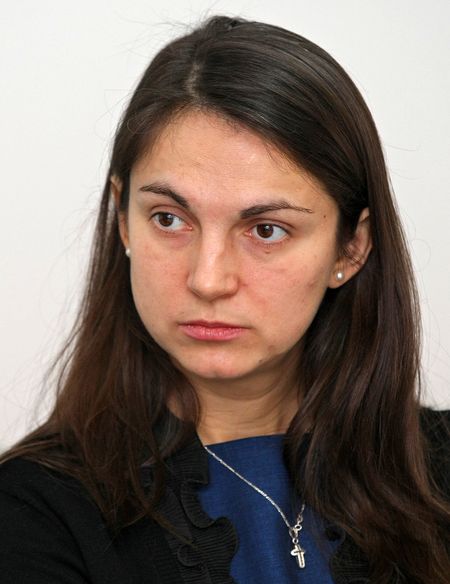Civic activists enter the corridors of power
The president asked Hanna Hopko to lead an agency at the presidential administration that will be responsible for NGO cooperation
Petro Poroshenko’s press service reported on June 22 that at a meeting of the Euromaidan’s civic movements and experts with the president, the coordinator of the Intensive Care Reform Package (ICRP) Hanna Hopko proposed to create within the presidential administration a position with responsibility for cooperating with the NGO sector and reforming the country. Poroshenko responded by asking her to take the position. According to Hopko, this option should be considered as a way to strengthen civil society’s ability to promote projects that are important for the country. However, the activist has no illusions about approaching the corridors of power. The ICRP is now using inter-factional parliamentary group called the Reform Platform as its conduit for closer contacts with the Verkhovna Rada. They are also cooperating with the Cabinet through the Reform Support Center. Accord-ing to Hopko, consistent promotion of changes and reforms will benefit greatly from creating a similar body at the presidential administration, tasked with cooperation with civil society.
“I am a believer in teamwork,” the ICRP coordinator Hopko commented for The Day. “The presidential proposal made on June 22 was quite unexpected for me. At the meeting, I said that I was not ready to give an answer at once, especially since I had already seen examples of bribing activists with official positions. These examples illustrate that at this stage, individual entries into the power structures do not yield any positive results for the country. However, what the country needs now is strong public control over the government.”
Activists’ opinions differ on the matter. Some people believe it to be an attempt by Poroshenko to neutralize the ICRP and decapitate the civic activism. Others say that entering the government and trying to influence the processes within it is worth the effort. “My preferred option for cooperation is by creating an institution (public council or committee), which has several co-chairs, with people from the presidential administration representing the government and people from our team representing the civil society. Also, this configuration should include the secretary and representatives of different sections, including one tasked with drafting legislation,” the ICRP coordinator continued. “It would help the matters by allowing the bills our experts develop, with those relating to fighting corruption, judicial and administrative reform and reform of state prosecution service being especially important, to become a top priority for the president. Ideally, there would be an advisory council created at the presidential administration, where volunteer experts from various fields will work. I hope this will be the first case of such a body reaching its goals.”
One of the key requirements of this cooperation effort is the real support of the president. “It is still unclear whether Poroshenko is ready to be an active member of the committee, to attend its meetings at least once per month,” the civic activist maintained. “It is important for us to understand the proposed body’s powers. Activists Tetiana Chornovol and Yehor Soboliev have already received ‘power positions’ without any authority or mechanism to undertake lustration or combat corruption. There must be understanding whether we will have access to the president, because if we only contact people who do not even have access to Poroshenko themselves, it will be only an imitation of cooperation with the public.”
According to Hopko, the final format of this cooperation will be presented to the president after a meeting of the ICRP coordination council. If the idea gets approval of the ICRP team, the experts will develop the statute, personal composition, and regulations of such a coordination council, which will work on a variety of fields, including at least 16 currently represented in the ICRP.






